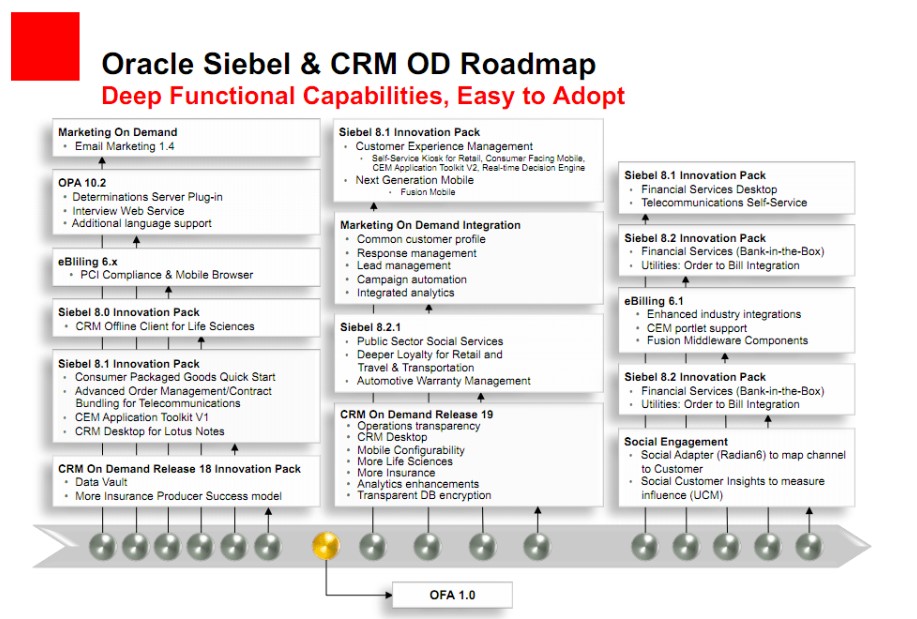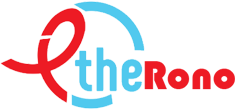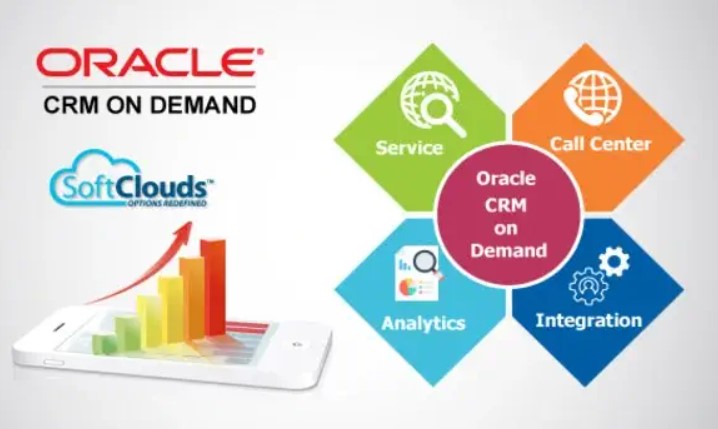In the dynamic landscape of Customer Relationship Management (CRM) solutions, Oracle stands as a prominent player, offering two distinct platforms: Oracle CRM On Demand and Oracle Siebel CRM. These robust systems cater to diverse business needs, each with its unique strengths and capabilities. As organizations increasingly recognize the importance of effective customer relationship management in driving growth and maintaining competitive edge, the choice between these two Oracle offerings becomes crucial.
This article delves into a detailed comparison of Oracle CRM On Demand and Oracle Siebel CRM, examining their key features, deployment models, scalability, customization options, and overall suitability for different business scenarios. By thoroughly analyzing these aspects, we aim to provide decision-makers with valuable insights to guide their selection process and ultimately choose the CRM solution that best aligns with their organizational goals and operational requirements.
Overview of Oracle CRM On Demand

Oracle CRM On Demand represents a cloud-based CRM solution designed to offer flexibility and accessibility to businesses of various sizes. Launched in 2006, this software-as-a-service (SaaS) platform has evolved to become a comprehensive suite of tools for managing customer relationships, sales processes, and marketing campaigns.
Key characteristics of Oracle CRM On Demand include:
- Cloud-based deployment: As a SaaS solution, it eliminates the need for on-premises infrastructure and allows for rapid implementation.
- Scalability: The platform can easily accommodate growing businesses, allowing them to add users and functionalities as needed.
- Regular updates: Oracle provides frequent updates and enhancements, ensuring users have access to the latest features and security patches.
- Mobile accessibility: Users can access the CRM system from various devices, enabling on-the-go productivity.
- Integration capabilities: Oracle CRM On Demand offers integration with other Oracle applications and third-party tools, facilitating a more cohesive business ecosystem.
The platform’s user-friendly interface and pre-configured industry solutions make it an attractive option for organizations seeking a quick-to-implement CRM solution with minimal IT overhead.
Overview of Oracle Siebel CRM
Oracle Siebel CRM, on the other hand, is a more established and comprehensive CRM system that has been a market leader since its inception in 1993. Acquired by Oracle in 2006, Siebel CRM continues to be a powerhouse in the enterprise CRM space, known for its extensive customization capabilities and robust feature set.
Distinguishing features of Oracle Siebel CRM include:
- On-premises deployment: Traditionally installed on-site, although cloud and hybrid options are now available.
- Extensive customization: Offers deep configurability to meet complex business requirements.
- Industry-specific solutions: Provides tailored functionality for various sectors such as financial services, healthcare, and manufacturing.
- Enterprise-grade capabilities: Designed to handle large-scale operations and complex organizational structures.
- Comprehensive suite: Includes modules for sales, marketing, customer service, and analytics, offering a holistic approach to CRM.
Siebel CRM’s strength lies in its ability to support intricate business processes and provide a high degree of control over data and system architecture. Its mature feature set makes it particularly suitable for large enterprises with complex CRM needs.
Deployment Models and Infrastructure
Oracle CRM On Demand
Oracle CRM On Demand employs a cloud-based deployment model, which offers several advantages:
- Reduced upfront costs: Organizations can avoid significant capital expenditures on hardware and software licenses.
- Faster implementation: The cloud-based nature allows for quick setup and deployment, often within weeks.
- Automatic updates: Oracle manages all updates and maintenance, ensuring users always have access to the latest features.
- Scalability: Resources can be easily scaled up or down based on business needs.
- Accessibility: Users can access the system from anywhere with an internet connection, promoting remote work capabilities.
However, this model may have limitations in terms of data control and customization depth compared to on-premises solutions.
Oracle Siebel CRM
Siebel CRM traditionally follows an on-premises deployment model, although Oracle now offers cloud and hybrid options:
- On-premises: Provides maximum control over data and infrastructure but requires significant IT resources for maintenance and upgrades.
- Cloud: Offers the benefits of cloud deployment while maintaining Siebel’s robust functionality.
- Hybrid: Allows organizations to leverage both on-premises and cloud environments, providing flexibility in deployment strategy.
The on-premises model of Siebel CRM is particularly appealing to organizations with strict data governance requirements or those in heavily regulated industries. It offers greater control over system architecture and data security but demands more internal IT resources for management and maintenance.
Scalability and Performance
Oracle CRM On Demand
Scalability is a key strength of Oracle CRM On Demand:
- Elastic resources: The cloud infrastructure allows for easy scaling of computing resources to meet changing demands.
- User scalability: Organizations can quickly add or remove users without significant infrastructure changes.
- Performance optimization: Oracle manages the underlying infrastructure, ensuring optimal performance across varying workloads.
- Global accessibility: Cloud-based architecture facilitates consistent performance for users across different geographical locations.
While Oracle CRM On Demand offers excellent scalability for most businesses, very large enterprises with extreme performance requirements may find some limitations in customization and data processing capabilities compared to on-premises solutions.
Oracle Siebel CRM
Siebel CRM is renowned for its ability to scale to meet the needs of large, complex organizations:
- Enterprise-grade architecture: Designed to handle massive data volumes and complex business processes.
- Vertical and horizontal scaling: Supports both adding more powerful hardware (vertical) and distributing load across multiple servers (horizontal).
- Performance tuning: Offers extensive options for optimizing system performance to meet specific organizational needs.
- Batch processing capabilities: Efficiently handles large-scale data operations and reporting tasks.
Siebel CRM’s scalability makes it particularly suitable for multinational corporations, conglomerates, and organizations with intricate hierarchical structures. However, this level of scalability often comes with increased complexity in system management and maintenance.
Customization and Flexibility
Oracle CRM On Demand
Oracle CRM On Demand offers a balance between out-of-the-box functionality and customization options:
- Configuration tools: Provides user-friendly interfaces for customizing fields, layouts, and workflows.
- Industry-specific templates: Offers pre-configured solutions for various industries, reducing implementation time.
- Web services API: Allows for integration with other systems and creation of custom functionalities.
- Limited deep customization: While flexible, it may not support the level of customization required by some complex business processes.
- Rapid deployment of changes: Customizations can be quickly implemented and rolled out to users.
The platform’s customization approach is designed to meet the needs of most businesses while maintaining the benefits of a standardized, cloud-based solution.
Oracle Siebel CRM
Siebel CRM is known for its extensive customization capabilities:
- Comprehensive development environment: Offers tools for creating complex custom modules and functionalities.
- Workflow designer: Allows for the creation of sophisticated business processes and automation.
- Scripting capabilities: Supports custom scripts to extend system functionality.
- Data model customization: Provides the ability to modify and extend the underlying data model to fit specific business needs.
- Integration framework: Offers robust options for integrating with other enterprise systems and data sources.
This level of customization allows organizations to tailor Siebel CRM to fit highly specific and complex business requirements. However, it also requires more specialized skills and resources to implement and maintain these customizations effectively.
User Interface and Experience
Oracle CRM On Demand
The user interface of Oracle CRM On Demand is designed with a focus on accessibility and ease of use:
- Intuitive design: Features a clean, modern interface that is easy to navigate.
- Responsive layout: Adapts to different screen sizes, supporting desktop and mobile usage.
- Customizable dashboards: Users can personalize their views and access key information quickly.
- Simplified data entry: Offers streamlined forms and processes to improve user efficiency.
- Consistent experience: Provides a uniform interface across different modules and functions.
While the interface is user-friendly, some users accustomed to more traditional CRM layouts might require an adjustment period.
Oracle Siebel CRM
Siebel CRM’s user interface reflects its comprehensive nature and depth of functionality:
- Feature-rich interface: Provides access to a wide range of tools and information within a single environment.
- Customizable layouts: Allows for extensive customization of screens and workflows to match specific business processes.
- Role-based views: Offers different interface configurations based on user roles and responsibilities.
- Integration with desktop applications: Seamlessly integrates with tools like Microsoft Outlook for enhanced productivity.
- Advanced reporting interfaces: Provides powerful tools for data analysis and visualization.
While highly functional, Siebel’s interface can be more complex, potentially requiring more training for users to fully leverage its capabilities.
Integration Capabilities
Oracle CRM On Demand
Integration is a key consideration for Oracle CRM On Demand:
- Pre-built connectors: Offers ready-to-use integrations with popular business applications.
- RESTful API: Provides a modern API for custom integrations and data exchange.
- Oracle Integration Cloud: Facilitates seamless integration with other Oracle cloud services.
- Third-party integration platforms: Compatible with various integration-as-a-service platforms for extended connectivity.
- Data import/export tools: Supports bulk data operations for integration with legacy systems.
These integration capabilities allow Oracle CRM On Demand to fit into diverse IT ecosystems, although the depth of integration may be limited compared to on-premises solutions.
Oracle Siebel CRM
Siebel CRM offers robust integration capabilities suitable for complex enterprise environments:
- Enterprise Application Integration (EAI): Provides a comprehensive framework for integrating with other enterprise systems.
- Web services: Supports both SOAP and REST web services for flexible integration options.
- Database-level integration: Allows for direct database connections for high-performance data exchange.
- Middleware compatibility: Works with various middleware solutions for complex integration scenarios.
- Custom connectors: Supports the development of tailored connectors for unique integration requirements.
Siebel’s integration capabilities are particularly strong, allowing for deep, bidirectional integrations with a wide range of enterprise systems and data sources.
Conclusion
Choosing between Oracle CRM On Demand and Oracle Siebel CRM ultimately depends on an organization’s specific needs, resources, and long-term strategy. Oracle CRM On Demand offers a flexible, cloud-based solution that can be rapidly deployed and easily scaled, making it an attractive option for businesses seeking a balance between functionality and ease of use. Its lower upfront costs and reduced IT overhead make it particularly suitable for small to medium-sized enterprises or organizations looking to quickly implement a CRM solution.
On the other hand, Oracle Siebel CRM stands out as a powerful, highly customizable platform capable of supporting complex business processes and large-scale operations. Its extensive feature set and deep integration capabilities make it an ideal choice for large enterprises with sophisticated CRM requirements, particularly those in heavily regulated industries or with complex organizational structures. While it may require more resources to implement and maintain, Siebel CRM offers unparalleled flexibility and control for organizations that need to tailor their CRM system to very specific business needs.

